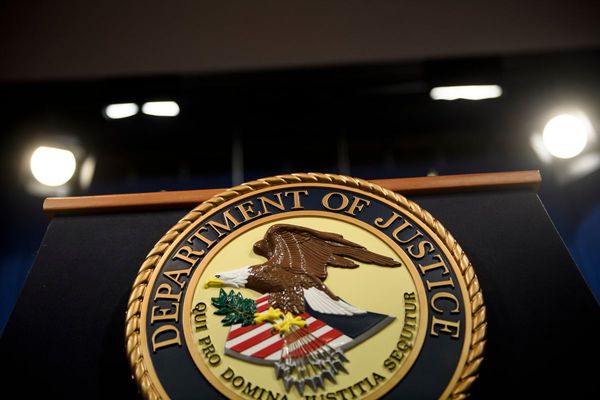
After all the sound and fury, the report from the Senate finance and public administration references committee on consulting services is not quite the scathing indictment of PwC and the rest of the big four we might have expected.
The final report from the major parties — the inquiry was chaired by the Liberals, in line with the practice that reference inquiries are chaired by non-government senators — focused on how to address the regulation of consulting firms, rather than calling out the misconduct of the big four. As the report notes:
Consulting firms … do not carry the status of a ‘profession’. They therefore operate in a grey area of regulation … the committee is cognisant of the extraordinary range in scale of consultancies: a consultancy may be a ‘mum and dad’ small partnership providing local services, through to a multi-national partnership like the big four. For this reason, the committee is concerned about how any proposed new regulation might impact different consultants.
But no-one is worried about mum and dad consultants ripping off the Commonwealth, being deeply conflicted, breaching confidentiality, abusing legal professional privilege or lying to or withholding information from Parliament. PwC, EY, KPMG and Deloitte have all done one or more of these things.
The committee could have walked and chewed gum, and gone after the offenders at PwC and elsewhere as well as explore options for better oversight of consultants (the report dumps the idea of regulatory reform on the Australian Law Reform Commission). Only the Greens, led by Barbara Pocock, wanted to do both.
The Greens are particularly exercised about Luke Sayers, the former head of PwC who has pretended to glide through the entire PwC tax scandal without a glove laid on him. Sayers’ defence has consisted of asserting that the whole scandal was down to a few bad apples, and that he himself had wanted to address conflict of interest in PwC by splitting the firm when he was in charge. Except, inconveniently, Sayers is on record back then as opposing any such split.
Sayers also insisted he was never told about the activities of Peter John Collins and his PwC colleagues in exploiting their privileged access to tax legislation changes. But we learnt from the inquiry, after the Australian Tax Office took its own sweet time to tell the committee, that in August 2019, Jeremy Hirschhorn, ATO second commissioner, called Sayers and took him through a number of areas of concern about the behaviour of PwC’s tax division. Hirschhorn read out emails from PwC to Sayers and told him to read them himself. Sayers says he can’t remember the discussion. As the Greens note:
This must have been a memorable experience for Mr Sayers: few Australians will have had a meeting with a second commissioner where their internal emails, illustrating potential serious breaches of tax law, are read to them to illustrate and emphasise the seriousness of a range of potential offences. However, Mr Sayers has maintained to this committee and publicly that he has no memory of these emails being drawn to his attention. To say that this memory failure is plausible is to stretch credibility.
Moreover, “Mr Sayers has not recognised any failures of his leadership at PwC through the period when serious offences in relation to monetising confidential information occurred.”
The Greens want any firm led by Sayers to be banned from Commonwealth consulting work for five years. They’re absolutely right to do so: either Sayers lied to the committee about his faulty memory, or he has a memory so bad that he ignores what some of the most senior bureaucrats in the public service tell him about very serious failings of the firms he leads. Either way, his company Sayers Advisory cannot be trusted in its interactions with the Commonwealth.
Since March 2023, Sayers Advisory has won over $6.7 million in Commonwealth contracts. These should be the last ones the company receives for several years, or until Sayers and his alleged faulty memory have moved on.
And despite the systemic focus of the major parties in the report, they are curiously silent about one of the most series regulatory flaws pertaining to consultancies: the payment of donations to political parties (in practice, only the major parties). Again, it is left to the Greens to tackle the issue.
The minor party proposes that “any entities tendering or contracting to the Australian government be banned from making political donations”. They also want to ban the “revolving door” between consulting firms and the public service and ministerial offices: “consulting firms aggressively use a revolving door of staff as well as make political donations to ‘farm’ new business opportunities, buy influence, inflate profit margins, access confidential information, and deliver benefits to their private clients.”
It’s a reminder that Labor went to the last election promising substantial political donation reform. Despite repeated drops to friendly journalists by Special Minister of State Don Farrell promising that legislation was just around the corner, Labor has done nothing whatsoever, and the next election will be no different to the last one in terms of how little voters will know about who has bought access to the major parties.
Based on that, don’t hold your breath waiting for any of the report recommendations to be implemented by this government, either.
Should Australia ban consulting firms from making political donations? Let us know your thoughts by writing to letters@crikey.com.au. Please include your full name to be considered for publication. We reserve the right to edit for length and clarity.







